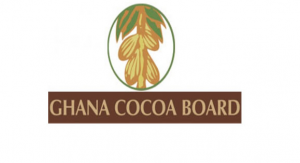Vice President of Imani Africa, Mr Kofi Bentil, has suggested to the government to scrap all taxes and and increase the Value Added Tax (VAT) to 25 per cent, from the current 19.25%.
Mr Bentil who is also a private legal practitioner said asked the government to stop double taxing those who are paying already following the introduction of the e-levy in the 2022 budget statement.
“If people are not paying taxes and so we need e-levy, then scrap all taxes and make VAT 25% and e-levy 5%. Stop double taxing those who are paying already!!! I think this makes a lot of sense,” he said in a Facebook post.
Finance Minister Ken Ofori-Atta announced a new levy to be charged by government in 2022 on all electronic transactions to widen the tax net and rope in the informal sector.
“It is becoming clear there exists enormous potential to increase tax revenues by bringing into the tax bracket, transactions that could be best defined as being undertaken in the ‘informal economy’,” Mr Ofori-Atta observed on Wednesday, November 17 as he presented the 2022 budget statement in Parliament.
“After considerable deliberations, government has decided to place a levy on all electronic transactions to widen the tax net and rope in the informal sector. This shall be known as the ‘Electronic Transaction Levy or E-Levy’.”
He explained that the new E-levy will be a 1.75 per cent charge on all electronic transactions covering mobile money payments, bank transfers, merchant payments and inward remittances to be borne by the sender except inward remittances, which will be borne by the recipient.
This will, however, not affect transactions that add up to GH¢100 pr less per day.
“A portion of the proceeds from the E-Levy will be used to support entrepreneurship, youth employment, cyber security, digital and road infrastructure among others.”
This new levy is scheduled to start Saturday, January 1, 2022.
In 2020, total value of transactions was estimated to be over GH¢500 million with mobile money subscribers and users growing by 16 percent in 2019.
According to a Bank of Ghana report, Ghana saw an increase of over 120 percent in the value of digital transactions between February 2020 and February 2021 compared to 44 percent for the period February 2019 to February 2020 due to the convenience they offer.
This was definitely heightened by the advent of Covid-19 especially during the lockdown.
But this proposal has met opposition from a number of people in Ghana especially from the opposition National Democratic Congress (NDC).
For instance, the Minority Leader, Haruna Iddrisu said that his side in Parliament was not going to support it.
According to him, the levy served as a disincentive for the growth of digital economy.
Speaking at a post-budget workshop in Ho on Saturday November 20, he said “Mr Speaker, understandably, we see that the Minister of Finance seeks to introduce some measures including the now popularly declared e-levy or digital levy as some have quite named it.
“Mr Speaker, our concern is whether the e-levy itself is not and will not be a disincentive to the growth of digital economy in our country. We are convinced that the e-levy may as well even be a disincentive to investment and a disincentive to private sector development in our country. We in the minority may not and will not support government with the introduction of that particular e-levy . We are unable to build national consensus on that particular matter.”







